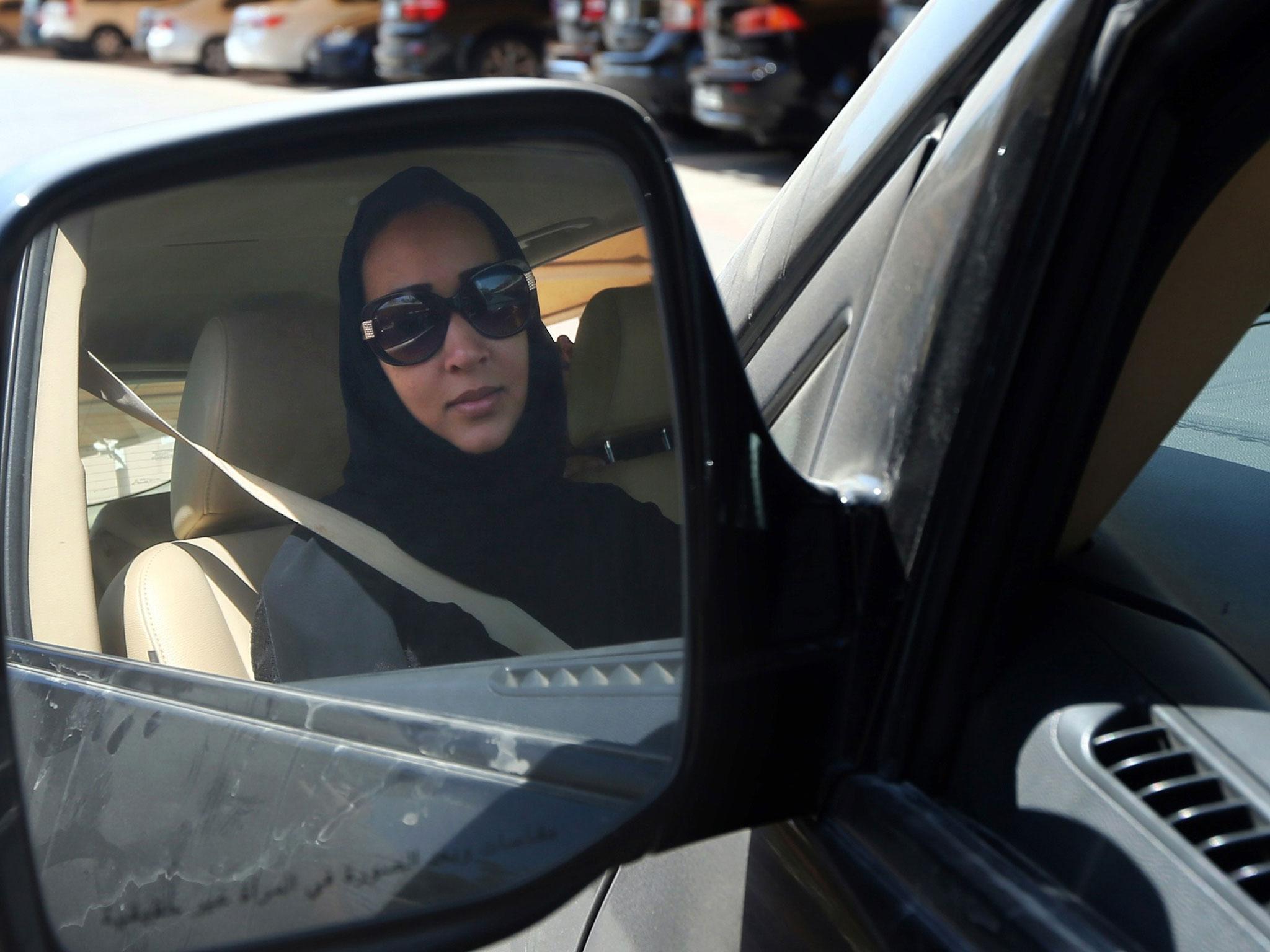Saudi women put their foot down to defy driving ban

Your support helps us to tell the story
From reproductive rights to climate change to Big Tech, The Independent is on the ground when the story is developing. Whether it's investigating the financials of Elon Musk's pro-Trump PAC or producing our latest documentary, 'The A Word', which shines a light on the American women fighting for reproductive rights, we know how important it is to parse out the facts from the messaging.
At such a critical moment in US history, we need reporters on the ground. Your donation allows us to keep sending journalists to speak to both sides of the story.
The Independent is trusted by Americans across the entire political spectrum. And unlike many other quality news outlets, we choose not to lock Americans out of our reporting and analysis with paywalls. We believe quality journalism should be available to everyone, paid for by those who can afford it.
Your support makes all the difference.A group of Saudi Arabian women plan to protest today against the world’s only ban on female drivers.
Organisers are urging women across the country to take to the roads. The group, named the “26th October Women’s Driving Campaign,” called on the government to provide “a valid and legal justification” for maintaining the ban, and “not simply defer to social consensus”, according to its website. More than 16,000 people signed an online petition in support.
King Abdullah has expanded the rights of women in the world’s biggest oil exporter, but not as quickly as many would have liked. The king, who faces opposition from traditionalist clerics and their followers, opened the first coeducational university, named the first female deputy minister and said women can vote and run in municipal elections. But that right won’t take effect until the 2015 polls, and the driving ban remains in force.
“We should feel insulted if someone says we are not ready for this change or that women cannot do this,” said May al-Suwayan, a 32-year-old economic researcher who is planning to drive as part of the protest.
“I don’t think Saudis look down on women. I think it’s a matter of fear of change, which will easily be overcome if women show them we are ready.”
Such views are strongly resisted. A group of religious men rallied outside the Royal Court in Jeddah on Tuesday, calling the right-to-drive movement a “conspiracy” against the government, al-Hayat newspaper reported. And last month Sheikh Saleh bin Saad al-Luhaidan, a Saudi cleric, told the Sabq website that Saudi women should not drive because they would risk damaging their ovaries.
Saudi Arabia is the birthplace of the austere Wahhabi form of Islam. Saudi women need a guardian’s consent to travel outside the country, marry or conduct official business.
The kingdom “reduces women to the status of children, unable to make important decisions about their lives,” Human Rights Watch said in a statement on Tuesday. And yesterday Amnesty International said that the driving ban is “discriminatory and demeaning to women and must be overturned immediately”.
The Interior Ministry warned women against joining today’s protest, saying laws will be enforced and instability will not be permitted, according to the official Saudi Press Agency.
King Abdullah, born in 1924, has stepped up spending to help create jobs since unrest spread through the Arab world in 2011, and women have shared some of the benefits. A total of 680,000 women were employed in 2012, up from 505,000 in 2009, according to official figures. Women have been allowed to take retail jobs that were previously barred.
Wider educational opportunities are also increasing women’s role in the economy. This year Sara Aalamari, a 27-year-old who works for the Al-Ghazzawi law firm in Jeddah, became one of the first four women to receive licences to practise law from the Ministry of Justice; she graduated in 2008 from the first law degree programme offered to Saudi women.
The licence “should make it easier for us to be able to appear in court and represent more clients,” Ms Aalamari said by telephone from Jeddah. “Women are getting assistance to have a greater role in the workplace.”
Economic pressure may help open Saudi roads to women, said John Sfakianakis, chief investment strategist at Masic, a Saudi investment company. Employing a driver “is a burden on middle-class purchasing power, and that could be addressed if women are allowed to drive,” he said.
Fawziah al-Hani, a 50-year-old social worker from Safwa in the Eastern Province, said the cost of hiring a driver takes a toll on her budget. She also says she has broader concerns.
“I’m not fighting for my rights alone, I’m fighting for my children’s,” she said. “Some of my daughters are studying abroad. They call me sometimes and tell me they don’t want to come back to Saudi Arabia.”
© The Washington Post
Join our commenting forum
Join thought-provoking conversations, follow other Independent readers and see their replies
Comments